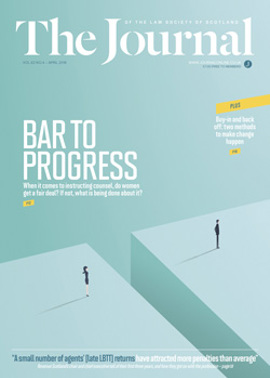Know your FTAs

Is your organisation looking to remain competitive domestically and globally? Upcoming and ongoing changes to international trade agreements – which may impact your organisation’s growth strategy – will either help or hinder you, depending on how knowledgeable and prepared you are.
Whether it be the renegotiation of the North American Free Trade Agreement (NAFTA), changes to US trade policies or the UK’s decision to leave the European Union (Brexit), to name only a few, the dynamics of international trade significantly impact the success of your business and its bottom line. They affect how your client does business, the risk associated with current business models, global expansion opportunities and the overall cost of doing business.
To best serve your client as in-house counsel, you need to understand and remain up to date on the applicable trade laws and free trade agreements (FTAs) so you can help your organisation manage the challenges associated with international trade, seize global opportunities and outperform the competition. If you adopt a wait-and-see approach or fail to prepare your client for upcoming changes, the negative consequences could be significant.
So what can you do to best position your business? Here are some steps to get you started.
1. Identify where your organisation does business
Map out the countries in which you have operations, those from which you source inputs and those to which you sell your products or services.
2. Identify the FTAs that may apply to your current footprint and sourcing patterns
Work with your customs and purchasing representatives to understand the products and services you import from other countries and for which you pay preferential duties today. This represents your current duty cost baseline, which could change if there are changes to the preferences or to the definition of what qualifies for duty preferences (e.g. changes to the rules of origin; import quotas).
It is equally important to understand the duty treatment currently applied to products and services you export to other countries. Changes to their import duty preferences could impact your costing structure as well as that of your current and potential customers. If your organisation is large and this seems overwhelming, focus on some of your larger operations or high-priority operations first.
3. Verify that your organisation is taking full advantage of the available FTAs
Review the applicable rules of origin requirements to determine whether your imports and/or exports qualify for lower duty rates. If they do qualify and your organisation is not taking advantage of the lower (often zero) duty rate, why not? Are you missing the certificates of origin or other documentary proof of origin required to secure the lower rate? If so, you should work with your purchasing team to obtain the required support from your suppliers.
If they do not qualify, look at why. Modifying your processes and working with or changing suppliers to meet the requirements may result in significant duty savings for your organisation and your customers, creating a competitive advantage.
Note that some FTAs also permit preferential access for professionals, highly skilled individuals and intra-company transfers. Using these provisions can facilitate the movement of critical personnel.
In addition, certain newer FTAs include provisions that call for increased regulatory harmonisation, standards testing recognition, transparency and consultation. If applicable, you may be able to use testing completed in one country to satisfy certain standards testing requirements in a destination country, reducing your compliance costs, again providing for opportunities to reduce costs.
Make sure internal processes are in place to monitor your activities, report on imports and exports accurately, and collect and maintain the required supporting documentation and certifications. Consider adding contractual obligations for suppliers and purchasers to provide the documentation, certifications and support you may need from them now and in the future (e.g., in the event of a government audit or verification).
Also use this time to explore new market opportunities that may already exist. Are there other markets to which your finished goods could be exported duty free under an existing FTA? Or is there an FTA under negotiation that should be factored into your organisation’s planning activities?
4. Be ready for change
There are many regional trading agreements under negotiation and several under renegotiation. Organisations that understand the current rules, proactively seek to influence changes and plan for the most likely outcomes will be the winners. Have systems in place to monitor key FTAs, and schedule periodic reviews of your organisation’s applicable policies and processes, updating as necessary, to ensure ongoing eligibility and compliance with documentary requirements. Providing your purchasing, marketing and planning departments with updated information and timing on possible changes is important so they have the lead time required to identify and implement adjustments. This will also help you be prepared for verifications and audits.
Working with your government relations team is a good way to monitor, assess, influence and prepare for anticipated changes. If you don’t have a government relations team, working with a business association or associations within the legal community may be a good alternative to stay on top of proposed changes.
5. Communicate and deliver training
In-house counsel are not likely to see every proposal for, or changes to, the organisation’s global strategy. Therefore, it is important for you to take steps to make your organisation, especially senior management, aware of the benefits of using FTAs to optimise global strategies. Such agreements can bring meaningful savings, increased efficiencies and new customers. Even if the decision makers just remember to ask the question, this will enhance your organisation’s chances of seizing related opportunities and avoiding costly, competitive risks.
As in-house counsel, you are trained to understand the elements, requirements and opportunities of international trade agreements. You have a solid understanding of your organisation’s priorities, the impact of FTAs on such priorities, your options and those of your competitors. In addition, you are likely well positioned within your organisation to co-ordinate, communicate and work with those developing and executing organisational strategies. Therefore, you can play a key role in advising decision makers and planners to ensure that global strategies include an understanding and assessment of available FTAs to lower costs, drive efficiencies and increase market opportunities. It is a concrete way to demonstrate the measurable value you bring to your organisation.
In this issue
- Fair instructions?
- The peasants have no bread
- Bad weather – adverse consequences?
- Defending children’s human rights in Scots law
- Scottish income tax – where are we now?
- Appreciation: Professor Emeritus Alexander John ("Alastair") McDonald
- Reading for pleasure
- Opinion: Gordon Addison
- Book reviews
- Profile: Paul Mosson
- President's column
- RoS welcomes new Keeper
- People on the move
- Fair instructions? (1)
- Law: not just a profession, but also a business
- Buying in and backing off
- Tax and the common touch
- Needs of the user
- Where did the money go?
- Five FOI tips every lawyer should know
- AI – the legal and ethical minefield
- Too long, too long?
- Times still a-changin' in '18
- An infrastructure levy for Scotland
- Tax changes to termination payments
- GDPR and the cloud
- Tide runs for lenders
- Passing on a pension to the right person
- Know your FTAs
- Scots to co-host ICW in Toronto
- Office of the Public Guardian: EPOAR and more
- Public policy highlights
- Our survey said...
- Q & A corner
- A profit without honour
- Appreciation: Professor Emeritus Alexander John ("Alastair") McDonald WS
- Ask Ash
- ASPIC finds its feet
- Pushing for change






